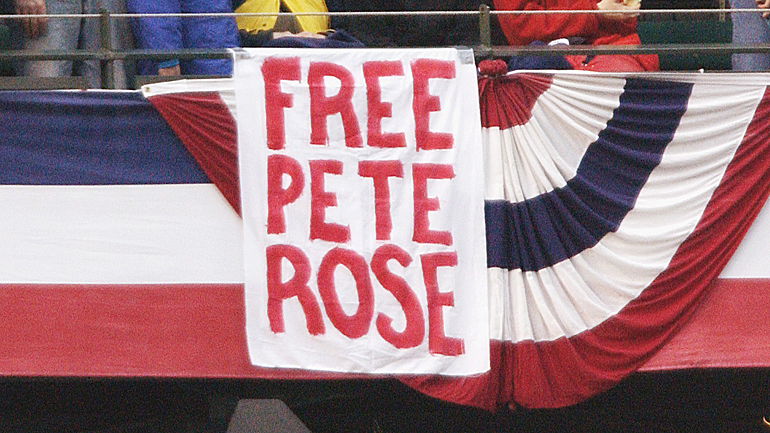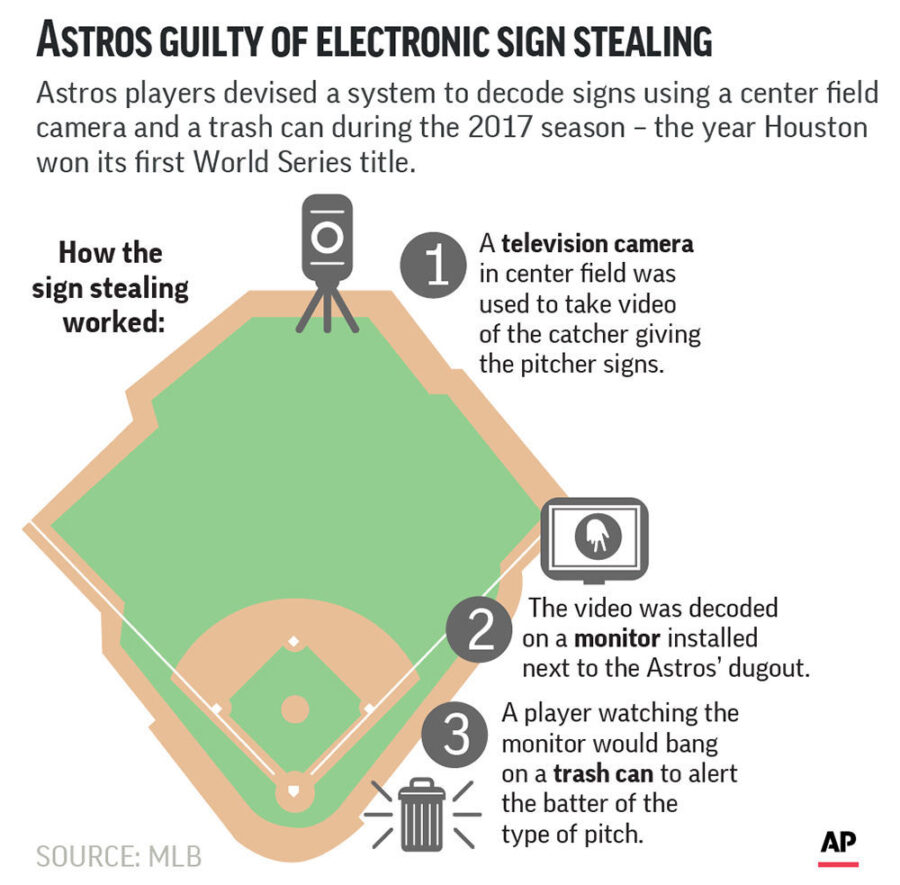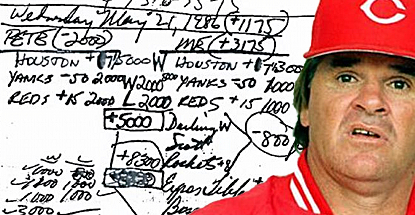Houston Astros and Pete Rose Collide at Home Plate

The cheating Houston Astros get off with a wrist-slap, while Pete Rose, a man with a gambling addiction, gets the max.
Prologue
I lived in Southwest Ohio for most of the 1980s. As a baseball fan and a huge Pete Rose fan, two dates are seared in my memory:
September 11, 1985 – We were playing in a league softball game on Howell Field in Dayton, Ohio. Rose was on the verge of surpassing Ty Cobb’s record for the most all-time hits. Our manager, Jim Luggen, had a transistor radio (remember those?) attached to his ear. All of a sudden, Jim let out a whoop and ran out to the field with the volume turned way up. We listened to announcers Marty Brennaman and Joe Nuxhall exalt in the news. The game stopped and both teams hugged each other.
August 24, 1989 – During that dreadful summer of 1989, I followed closely the Pete Rose gambling saga. After dinner, I would get into my car and drive around aimlessly, listening to Cris Collingsworth of WLW-Cincinnati chatter about court rulings, hoodlums with betting slips, Pete’s denials and baseball’s attack dog John Dowd encircling our boy.
Hope turned to melancholy on August 24, the day Baseball Commissioner A. Bart Giamatti declared Pete Rose permanently ineligible for Major League Baseball. It came with the stipulation that Rose could apply for reinstatement after one year. It was later revealed that Rose’s lawyers turned down an eight-year suspension.
Since there was no admission that Pete violated baseball’s Rule 21, the holy grail that prohibits players from betting on baseball that’s posted in every MLB clubhouse, the optimistic Rose accepted his banishment. He really believed he would be back in a year. How wrong he was. It turned out the Dowd Report had plenty of smoking guns.
Over 30 years later, Rose is still petitioning baseball for his reinstatement. His latest pleading mentions a certain Texas baseball team, which happens to be playing in this year’s Fall Classic.

The Cheating Houston Astros
Baseball fans know well that a pitcher’s best friend is the element of surprise. When a pitcher peers into a catcher’s glove for a sign–typically, one finger for a fastball, two for a curve, three slider, four change-up–the opposing team is not supposed to know the exchange.
It’s not that all sign-stealing is illegal. If it’s done on the field and without electronic surveillance, sign-stealing is an honored baseball tradition. Just watch a game and see what happens when an opposing player reaches second base. Since the baserunner at second has a birds-eye view into the catcher’s glove, there will likely be a meeting on the mound to change sign sequences.
During the 2017 season that culminated in the Astros winning the World Series, Houston basically went rogue and stole the opposing team’s signs in a completely illegal way. It was tantamount to committing burglaries and walking away with millions of dollars (or whatever the financial reward is for winning a title).
The scheme went like this:

Slaps on the Wrist
Of course, the team got caught. Punishment, if you can call it that, was meted out: the Astros’ manager and GM were fired after MLB gave them a one-year suspension. The team was fined $5 million.
The Boston Red Sox said good-bye to manager Alex Cora after he was implicated in the scheme while he was the Astros bench coach during the 2017 season. Baseball fans who last week watched the American League Championship Series between Houston and Boston saw a lot of Alex Cora. He is once again the Red Sox manager.
Only one player felt the wrath of Baseball Commissioner Rob Manfred. Carlos Beltran, who played outfield for the Astros in 2017, thought it better to resign rather than to accept the job as manager of the New York Mets.
Astros Keep the Title
Most important, the Houston Astros were not stripped of their 2017 title. Commissioner Manfred cited the unthinkable precedent of vacating championship titles by saying, “Once you go down that road of changing what happens on the field, I just don’t know how you decide to stop.” Hmmm… Hold that thought.

Pete Rose’s Quest for Reinstatement
Last year, Rose filed yet another petition for reinstatement, this time citing the relatively light punishments received by the principals of the Houston Astros sign-stealing scandal (and prior steroid episodes). Here is a salient point from the 20-page document:
There cannot be one set of rules for Mr. Rose and another for everyone else…It has never been suggested, let alone established, that any of Mr. Rose’s actions influenced the outcome of any game or the performance of any player…Yet he continues to suffer a punishment vastly disproportionate to those who have done just that.
Petition obtained by ESPN
15 Years in Denial
Rose’s first reinstatement petition was filed in 1997, the year his suspension would have ended if he had chosen that route. But with damning evidence and no admission of guilt, it was no dice.
In 2004, in an autobiography titled My Prison Without Bars, Rose finally admitted to betting on baseball while managing the Cincinnati Reds. He even confessed to betting on his own team but never against it. MLB’s commissioner at the time, Bud Selig, had this dilemma: Since Rose had lied for so long, how could he know he wouldn’t gamble again? Selig gave Pete a thumbs down.
Rose had this to say: If he “had been an alcoholic or drug addict, baseball would have suspended me for six weeks and paid for my rehabilitation.” Hmmm…
Gambling Addict
In 2015, Pete Rose was given another opportunity for reinstatement. Commissioner Manfred was tasked with determining whether Rose had “reconfigured his life,” the plea of the late Commissioner A. Bart Giamatti when he set conditions for Rose’s reinstatement.
They had two face-to-face meetings and they did not go well. Manfred was said to be astonished by Rose’s lack of contrition, inconsistent testimony and especially Pete’s failure to understand the severity of his violations.
In his ruling, Manfred wrote:
Mr. Rose has not presented credible evidence of a reconfigured life, either by an honest acceptance by him of his wrongdoing…or by a rigorous, self-aware and sutained avoidance by him of all of the circumstances that led to his permanent ineligibilty in 1989.
Robert Manfred
Can’t Help Himself
Astoundingly, Rose did not pass a voluntary polygraph test during which he was asked whether he bet on baseball in the past year.
Pete had to know something like that was coming. Here’s the deal: the man was given a shot at redemption. All he had to do was to stay away from the one thing–betting on baseball–that cost him 30+ years in the wilderness. But he couldn’t. He just couldn’t.
Believe this old ex-junkie: there is not a better definition of addiction.
In these supposedly enlightened times, there has to be a better outcome for a man who is unable to help himself.



















































































































